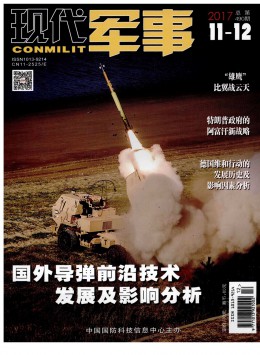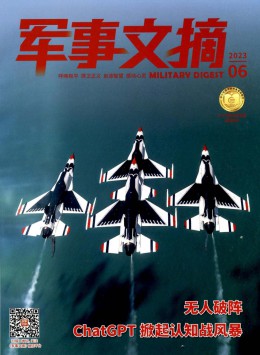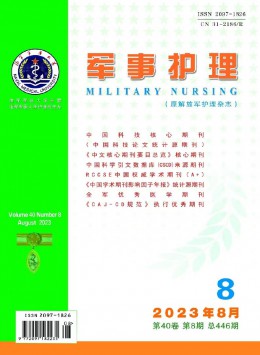軍事心理學論文精選(九篇)
前言:一篇好文章的誕生,需要你不斷地搜集資料、整理思路,本站小編為你收集了豐富的軍事心理學論文主題范文,僅供參考,歡迎閱讀并收藏。

第1篇:軍事心理學論文范文
關鍵詞 軍事應激源,應激,認知,工效學。
分類號 B849:E
由于軍事任務的特殊性,軍事應激廣泛存在。目前軍隊裝備自動化、數字化的提高,除了傳統的應激源外,高技術的軍事裝備對于官兵也形成了新的應激源,應激對于認知工效的影響成為新的研究熱點。
美國工程心理學家Wickens指出三里島核電站核反應堆事故中,應激造成了控制室中值班人員的判斷和績效的下降。在美軍護衛艦Vincennes擊落伊朗民用飛機的事故中,應激也有類似的作用,美軍認為他們遭到了軍用飛機的襲擊。1989年3月,Ontario 公司的Flight 363 從Dryden起飛時墜落燃燒,其直接原因是雙翼的雪和冰。Helmreich 對事故進行了工效學分析,認為時間壓力和其他的應激源導致機長做出了致命的除冰和起飛的決策[1],才導致了事故的發生。在很多軍事沖突中,軍事人員有時錯誤地攻擊自己人或者盟軍。軍事分析發現了很多原因,其中同認知有關的就是情境意識差(U.S. Army)、應激及焦慮。
1 基本理論
Hans Selye 是第一個完整提出應激定義的科學家。他在1983年指出,面對應激時有兩種反應,一為特異的對特定應激源的反應;另一個是應激的普遍反應(general adaptation syndromes, GAS)。并指出GAS包括三個階段:警覺反應、抵抗、耗竭。隨后有很多科學家就應激的生理及適應性反應進行了研究,隨著研究的進展,人們開始關注應激與認知之間的關系。
如Novaco所說,應激源對個體的要求及個體評估自己滿足這些要求的資源上產生了不平衡,個體懷疑自己能否滿足這些要求,是否具有迎接挑戰的能力,從而可能產生了應激。
如圖1所示,個體情況可能會影響應激反應,同樣的應激源在不同的時間可能產生的應激反應不同,這就同個體的敏感情況有關,比如身體狀況、可利用的資源等。個體特點有兩方面的含義:個體應對不同應激的能力;個體對應激源可能后果的評估。個體性格[2]、一貫的行為方式、團體工作特點及支持狀況都會影響個體應激反應。而其他因素則包括了環境因素等,而這并不是一定發生作用,有可能在這個應激源作用下發生作用,另一個應激源作用下不發生作用。在有機械的情況下,還包括機械的設計等,當機器存在工效學問題時,就有可能導致操作者的錯誤決策。人-機系統的任務中既包括認知方面也包括非認知方面。人們一般認為應激影響了操作中的認知成分。
2 應激對認知的影響
探討應激對工作績效影響的認知特征[8],有助于設計出容錯性強的界面或者開發出能降低應激效應的對抗技術。
2.1 注意狹窄
應激情況下會出現知覺狹窄效應[3],這樣不利于績效,對于那些需要大量通道信息的任務影響更大。
2.2 注意分散
聲音、溫度的不適宜等各種原因都會引起注意分散,甚至一些應激只引起注意分散。
2.3 工作記憶損失
當被試(士兵)處在可知覺的應激環境中時,工作記憶容量[3]下降,從而引起問題解決中的認知困難,并且更多地對同工作記憶密切相關的情境意識產生影響。
2.4 固著于過去經驗
多項研究[12]表明,在應激情況下,人們的創造性得分降低,人們容易固著于過去經驗帶來的策略。將注意力集中在最重要的線索上,并繼續找支持該線索的新線索,形成固定的假設。
2.5 策略控制[4]
被試并不是對應激源本身而是對知覺到或理解的應激水平做出水平,因此,兩個處于同樣環境的人應激水平有可能是不同的。他們會選擇各自特定的策略[5]:動員更多的資源,或消除應激源,或改變策略,或什么也不做。
3 研究方法
3.1 實驗室研究
在實驗室研究中,將軍事人員作為被試進行有關研究,主要包括認知功能、心理運動能力等。
3.2 事故分析
事故分析中,研究人員通過分析重要的、災難性事件的資料,努力重建可能導致或者和事故有關的條件,找到相關因素。在這個研究方法[6]中,不同的研究者有不同的經驗和理論背景,有可能帶著自己的某些假設,專門找符合自己判斷的資料,而忽略不支持自己判斷的資料。 因此,應用該方法時,最好是幾個人一起進行,并制定一套規則,使分析更為客觀和準確。
在這個研究方法中,還涉及到了統計問題。例如,從以前類似事故中進行總結分析,就涉及到元分析的問題。例如,William分析了歷年飛行事故問題后得出結論,這些事故中的認知原因中都有資源管理和導航問題。
進行事故分析研究[7]中,另一個問題是個體差異的問題。如果一個事故中,這個人的易感性就高于其他人,或者存在能力問題等,從分析這個事故中得到的結論就很難推廣到其他人身上。
盡管人們應用事故分析的方法已有很多年,但是應激工效學家應用它還是近十年的事情,有關的研究論文還是比較少,在方法的應用上還有待于進一步的提高。
3.3 模擬
對于某些特定的任務,在模擬研究[8]中可以復制一些,但并不是全部的情境。例如,應用飛機模擬器,坦克模擬器進行訓練等。這些都非常接近真實的情況。但是,應激的情況很難在模擬環境中實現。今后的研究應該考慮在模擬研究中加入應激的因素,軍事人員能夠在沒有面對真實應激時感受到應激,其中認知的因素非常重要,而不僅僅是身體上的應激。
目前應用的模擬技術包括:電影;角色扮演;競爭性游戲;軍事演習等。
比較好的模擬是指能夠讓參加者和外界環境隔離,使他們能夠在小環境中認知到自己的危險。因此,在模擬環境中如何使被試感受到這個小環境中是非常重要的。而不是這種想法:“這僅僅是游戲”,“我知道不會有任何真正的壞結果發生”等。
Armstrong回顧了很多有關角色扮演的研究,他尤其比較了由專家做出的預測和沖突情境下角色進行預測的正確性,基于角色扮演的預測的正確性更為正確。例如,競爭性游戲中的心理學研究也關注于應激和績效。
目前有了虛擬現實技術,可以更為真實地模擬現實環境及應激情況,更能夠讓被試產生真實的感受,從而能夠很好地產生相應的心理感受。因此,越來越多的研究利用該技術研究應激和認知之間的關系,以及決策的每個過程。
3.4現場研究
目前有關現場研究的報告多集中在對情緒及心理健康的影響上,由于現場研究中心理技術應用上的欠缺,以及很多報告沒有公開,所以沒有很多的文獻參考。但是,隨著生理技術的發展,使即時研究成為可能。例如,腦電、心電、呼吸頻率、皮電等。在軍事人員進行操作的同時連續記錄生理指標的變化,從而研究其績效的變化,并進一步可以研究其預警系統的開發,以及對抗措施的研究。
4 處理應激的方法
4.1 消除或減少應激源[14]
主要通過控制工作環境來達到目的,例如通過降低噪音、適宜溫度、合理的倒班制度等消除或者減少某些應激源。
4.2 選拔能夠對抗應激的人員
如圖1所示,面對應激時,不同的人會有不同的表現[9]。可能的原因是,他們有不同的能力或者對任務的熟悉程度不同。另外的原因可能在于,他們對這個應激情境的評估不同,他們有可能認為任務或者應激環境太難,而他們的能力不夠應付,或者他們評估為了完成任務所需要的努力不準確,因此他們的動機和決策不同造成了績效的不同。
研究應激和認知績效的科學家開始認識到,面對應激時人的表現不同,說明理解個體間差別是非常又重要的。但問題就在于我們怎樣能夠準確有效地預測每個人在給定情境中如何被應激影響。例如,在有關空中交通管制人員的研究中已經開始高耐壓人員的選拔。人們認為,低焦慮特質、對于非一致性的追求、堅持、外向等同高耐壓有關。也有研究者發現延遲數字回憶測驗,可以預測人-機系統中人的壓力水平。Reason發現,應激敏感性同簡單的“日常認知失敗問卷”成績有很大的相關。
4.3 針對應激環境的訓練[11]
在Keinan和Friedland的研究中,以以色列軍人作為被試,要求他們在紙上找到隨機分布的數字3。最后被試有3個任務來評估。前兩個任務后,被試分別會有1.5 mA的電擊在手指上,隨后有一些不確定的任務和不確定的電擊相聯系,從而對被試產生壓力。結果表明,一個混合訓練可能會有效,也就是在放松狀態下學習基本技能,在應激情況下過渡學習這些技能。因為應激情況下,人們學習速度會減慢,所以學習時間就會相應延長。至于什么時間、以什么方式在訓練中引進應激還有待于我們進一步研究。
4.4 詳細說明任務
任務必須詳細說明,任務的清晰程度在人-機系統中有重要的作用。一些應激情況下,不清楚的任務或者步驟以及任務結果的不確定性會增加應激水平,導致績效下降。
目前為止,我們看到的有關研究都是在實驗室中或者模擬情況下確定的任務,因此得到的結論沒有考慮任務不清晰的情況,不具有普遍性。在以后的研究中,應該將任務表述作為變量,研究對工作績效的影響。
4.5 戰略性的應激反應
認知加工過程分為控制的和自動化的兩種。同樣對于應激的反應也可分為戰略性的和反應式的兩種。在戰略性反應中,為了適應應激環境,個體能夠進行詳細的規劃。例如,面對必須進行選擇的時間壓力時,決策者能夠理智地選擇決策過程,對于那些重要的信息給予更多的關注,并首先完成。決策者能夠清楚地認識到沒有足夠的時間考慮所有的細節,做結論時必定會忽略其中一些。對于一個應激源的反應式反應是應激者的自動反應,導致無法有效決策。
4.6 對抗應激的人-機系統研發
最后是關于人-機系統的研發,也就是在軍事應激環境下,該機器仍然能夠保證人們不出任何問題,準確完成任務。這就需要知道應激源是如何作用于個人及群體的[10]。盡管相關研究也很少,但上面已經討論了有關應激如何作用于個人。有關軍事應激對群體行為發生怎樣影響的研究就更少了。因為,有關研究主要集中在實驗室研究中。
個體的反映是系統設計的關鍵。系統應該被設計成為能夠對抗應激對人的影響。例如,應激可能使人的注意范圍變窄、思維廣度變小,只考慮單一的可能性。一個特殊設計的系統就應迫使使用者考慮所有可能的原因,或者能夠提供這樣的事例。
每個人在面臨應激時,都會出現上述問題,但是不同的人可能會有不同的想法,稱群體思維(group thinking)。這種系統就應該設計為在應激情況下,能夠輸入不同人的想法并且能夠整合,提出最優方案。但也有研究表明,這樣的設計更多的成為了一個阻礙,而不是幫助。后來的研究[15]表明,群體互相之間的阻礙作用應該是可以避免的,因為有關軍事應激和認知的研究非常少,目前關于軍事應激如何影響群體認知,及最后影響工效的研究還未見報道。如何在人-機系統中考慮群體認知的問題有待進一步研究。
5 總結
隨著高技術、自動化在軍事上的廣泛應用,軍事人員在人-機系統中面臨的應激也越來越多,其中更多的是有關認知方面[16]。因此,對于應激和認知工效之間的關系研究引起了研究界的廣泛興趣。
本文回顧了應激的基本理論、軍事應激和認知關系的研究技術、減少應激對認知影響的可能方法。其中在研究方法中重點是對已有事故的分析,競爭性游戲和虛擬現實技術。在減少應激對認知不良影響的方法中值得注意的是:對抗應激人員的選拔、對人員的訓練和能夠對抗應激的人-機系統的開發。
在未來的有關軍事應激和認知工效的研究依然是軍事心理學家、工程心理學家的研究熱點。
參考文獻
[1] Driskell J E, Salas E. Group decision making under stress. Journal of Applied Psychology, 1991, 76: 473~478
[2] Allred K D, Smith T W. The hardy personality: cognitive and physiological responses to evaluative threat. Journal of Personality and Social Psychology, 1989, 56: 257~266
[3] Baddeley A D. Selective attention and performance in dangerous environments. British Journal of Psychology, 1972, 63: 537~546
[4] Ben Zur H, Breznitz S J. The effect of time pressure on risky choice behavior. Acta Psychologica, 1981, 47: 89~104
[5] Broadbent D E. Differences and interactions between stresses. Quarterly Journal of Experimental Psychology, 1963, 15: 205~211
[6] Christianson S A. Emotional stress and eyewitness memory: a critical review. Psychological Bulletin, 1992, 112: 284~309
[7] Erlbaum N J. Aftereffects of stress on human performance and social behavior: a review of research and theory. Psychological Bulletin, 1980, 88: 82~108
[8] Lieberman H R, Bathalon G P, Falco C M, et al. Severe decrements in cognition function and mood induced by sleep loss, heat,dehydration, and undernutrition during simulated combat. Biol Psychiatry, 2005, 57: 422~429
[9] Benight C C, Bandura A. Social cognitive theory of posttraumatic recovery: the role of perceived self-efficacy. Behav Res Ther, 2004, 42: 1129~1148
[10] Huang G D, Feuerstein M, Kop W J, et al. Individual and combined impacts of biomechanical and work organization factors in work-related musculoskeletal symptoms. Am J Ind Med, 2003, 43: 495~506
[11] Hartmann E, Sunde T, Kristensen W, et al. Psychological measures as predictors of military training performance. J Pers Assess, 2003, 80: 87~98
[12] David A S, Farrin L, Hull L, et al. Cognitive functioning and disturbances of mood in UK veterans of the Persian Gulf War: a comparative study. Psychol Med, 2002, 32: 1357~1370
[13] Lieberman H R, Tharion W J, Shukitt-Hale B, et al. Effects of caffeine, sleep loss, and stress on cognitive performance and mood during U.S. Navy SEAL training. Sea-Air-Land. Psychopharmacology, 2002, 164: 250~261
[14] Morgan C A, Wang S, Rasmusson A, et al. Relationship among plasma cortisol, catecholamines, neuropeptide Y, and human performance during exposure to uncontrollable stress. Psychosom Med, 2001, 63: 412~422
[15] Amos D, Hansen R, Lau WM, et al. Physiological and cognitive performance of soldiers conducting routine patrol and reconnaissance operations in the tropics. Mil Med, 2000, 165: 961~966
[16] Nisenbaum R, Barrett D H, Reyes M, et al. Deployment stressors and a chronic multisymptom illness among Gulf War veterans. J Nerv Ment Dis, 2000, 188: 259~266
Cognitive Ergonomical Study about Military Stress
Song Guoping
(Lab of Ergonomics Psychology, Institute of Psychology, Chinese Academy of Sciences, Beijing 100101, China)
(Military Hospital 467, Shijiazhuang 050800, China)




